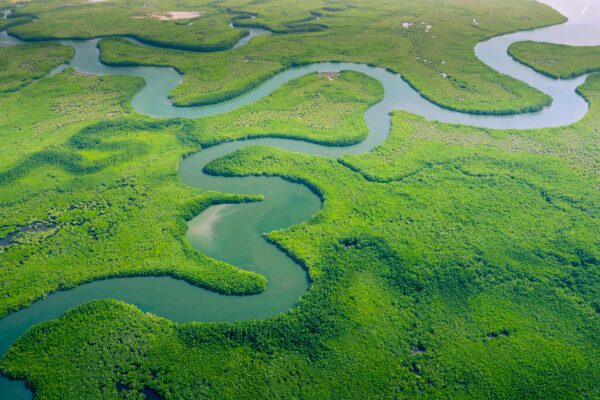
Protecting Oceans and Livelihoods
For businesses, neglecting marine health is no longer just an environmental concern; it is a material financial risk.
Ocean Stewardship: A Business Imperative for Sustainable Livelihoods
The ocean is far more than a natural resource—it is a multi-trillion-dollar asset underpinning global economic stability and providing direct sustenance for billions of people.
For businesses, neglecting marine health is no longer just an environmental concern; it is a material financial risk. Protecting the ocean means safeguarding the foundation of human prosperity and corporate resilience.
The Economic Case for Ocean Health
The blue economy spans industries from shipping and fisheries to biotechnology and renewable energy. Yet, it is under severe strain:
- Overfishing has pushed nearly 90% of global fish stocks to their maximum sustainable limits, threatening the primary protein source for over three billion people and destabilising a multi-billion-dollar industry that supports 60 million jobs worldwide.
- The ocean regulates climate by absorbing excess heat and anthropogenic carbon dioxide. Rising sea levels disrupt coastal supply chains, damage infrastructure, and impact tourism and real estate livelihoods.
- Pollution—plastic, chemical, and even noise—further degrades marine ecosystems. For sectors like food processing and aquaculture, contamination poses significant risks to product safety and brand reputation.
In short, ocean health is not just an ecological issue—it is a business continuity issue. This leads us to the next critical question: how do we protect livelihoods tied to the ocean?
Connecting Ocean Health to Human Livelihoods
The link between ocean health and modern economies runs deep. Industries depend on stable marine ecosystems for growth and resilience:
- Offshore Renewable Energy
Large-scale offshore wind, wave, and tidal projects create green jobs. Their success depends on strong governance and biodiversity protection. Poor marine management leads to regulatory hurdles, delays, and jeopardizes long-term energy security. - Maritime and Global Trade
Healthy oceans ensure stable trade routes. Climate-driven sea level rise threatens port infrastructure, increasing insurance, maintenance, and route deviation costs. Adhering to international marine protection standards safeguards logistical networks and dockworker livelihoods. - Food Retail and Consumer Trust
Retailers face mounting pressure for ethical seafood sourcing. Verified traceability and rejection of products linked to Illegal, Unreported, and Unregulated (IUU) fishing protect both brand integrity and jobs across the supply chain.
Protecting ocean ecosystems is synonymous with protecting jobs, supply chains, and consumer trust. But beyond risk mitigation, there is an opportunity for growth.
From Risk Management to Value Creation: Investing in the Blue Economy
Forward-thinking organisations are shifting from defensive strategies to proactive investment in ocean sustainability. Examples include;
Circular economy solutions are at the forefront of this shift. Businesses are redesigning packaging to eliminate single-use plastics, adopting biodegradable or reusable alternatives, and implementing closed-loop systems that recover materials before they reach the ocean. Many are also investing in innovative bio-based polymers and ocean-safe materials, with global brands piloting refill stations and packaging-as-a-service models to cut ocean-bound waste.
Aquaculture, essential for meeting global protein demand, is evolving through land-based recirculating systems that reduce pressure on wild fish stocks and minimise disease spread. Companies are replacing fishmeal with plant-based or insect protein and exploring integrated multi-trophic aquaculture, where species such as fish, shellfish, and seaweed coexist to recycle nutrients. These innovations, including algae-based feeds and zero-discharge farms, are setting new sustainability benchmarks.
Marine Protected Areas (MPAs) offer another critical opportunity. Acting as biodiversity hotspots and fish nurseries, MPAs boost long-term yields and ecosystem resilience. Businesses are funding their creation and monitoring through technologies like drones and satellite tracking, partnering with local communities to ensure social and economic benefits, and leveraging blue carbon initiatives to monetise conservation through verified carbon sequestration. Partnerships between seafood companies and NGOs are already restoring coral reefs and enhancing fish stocks.
These innovations don’t just mitigate risk—they create new revenue streams, strengthen resilience, and enhance corporate reputation.
A Call to Action
The health of the ocean and the global economy are inseparable. Ocean stewardship is no longer a side initiative—it is central to corporate strategy, risk management, and long-term value creation. Businesses that act now will lead in resilience, reputation, and growth.
If you have any questions or would like to discuss how our experts could best support you, please contact our ESG consultants today.










